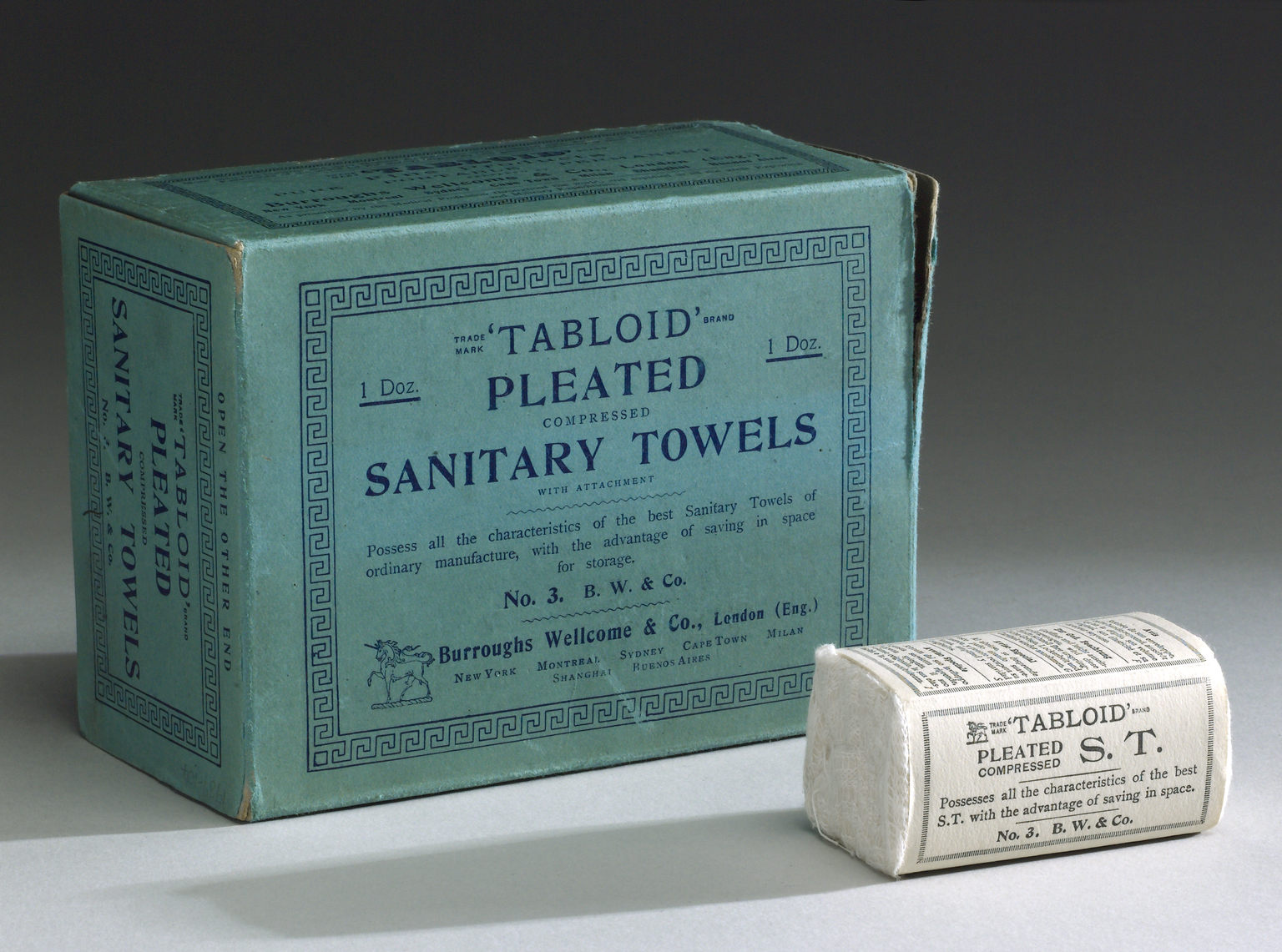As a group of museums we are committed to collecting and preserving both historic and contemporary objects. There are stories hidden everywhere, especially in the objects we use everyday.
Recently we started a project to collect examples of menstrual products available today to fill a significant gap in our collection.
Though the Science Museum Group Collection has some historic examples, including products from the late 1800s and the early twentieth century, most items are from the 1960s and 1980s.

Our collection should be relevant to the whole population – so from tampons to Mooncups, pads to period pants, our team has identified some new items to add.
2019 seems the perfect time for this project. In recent years there has been a movement to demystify menstruation, and people have been speaking more openly about the topic.

Campaigns have been launched to challenge the taxes placed on menstrual products in Britain since they were first classified as ‘non-essential items’ in 1973. The tax was reduced from 17.5% to 5% in 2001 but still exists.
The significant cost of menstrual products means that people in the UK and throughout the world cannot afford the items they need. These circumstances have led charities to challenge ‘period poverty’.
One such charity is Freedom4girls, who initially provided menstrual products in Kenya but now also works in West Yorkshire, helping those in need. Girls missing school due to their periods is a concern shared by Freedom4girls and similar organisations operating across the world.
The USA-based The Pad Project provides Muruganantham machines to developing countries. These machines, invented by Arunachalam Muruganantham, create affordable and biodegradable menstrual pads. They increase access to vital products while also creating jobs for local women.
Netflix released a documentary with The Pad Project about one such machine. Period. End of a sentence. won the Oscar for Best Documentary Short Subject in 2019.
In the UK there have been new legislative efforts to challenge period poverty.
In 2017, the Scottish government piloted a scheme in Aberdeen to provide menstrual products to the local population – which has since been extended. The Scottish government has now committed a further £4 million to improve access to these vital products.
The NHS also pledged to provide these items for patients in hospital. Recently this has been extended to include secondary schools and colleges throughout England.
But the impact of the ‘period tax’ goes beyond its financial consequences, by also increasing societal taboos around periods. Thankfully, social and political movements are breaking down these boundaries.
The #bloodnormal campaign has used social media as a way of normalising periods and their representation in popular culture. Bodyform was the first to use red fluid in adverts, while many YouTubers, manufacturers and charities have used their platforms to help break the taboo.

Campaigners also continue to discuss the environmental impact of our reliance on one-use disposable products. These concerns have resulted in an increase of environmentally friendly and reusable products, which has helped to open dialogues surrounding menstruation and make the market far more competitive.
After completing our first batch of collections, my colleague Dr Laura Humphreys (Curatorial Project Manager) tweeted asking what else we should add, and the response has been phenomenal.
Many people shared their stories and recommendations, and we have even built relationships with companies and activists as a result. Thank you to everyone for sharing their experiences with us.
Though we don’t currently have an exhibition planned related to this project, every item that joins the Science Museum Group Collection will be cared for as part of the national collection, where they can be studied by the public, researchers and curators.
These new additions will provide a snapshot of menstrual products in 2019 and are mementos of the social and cultural changes surrounding menstruation.
